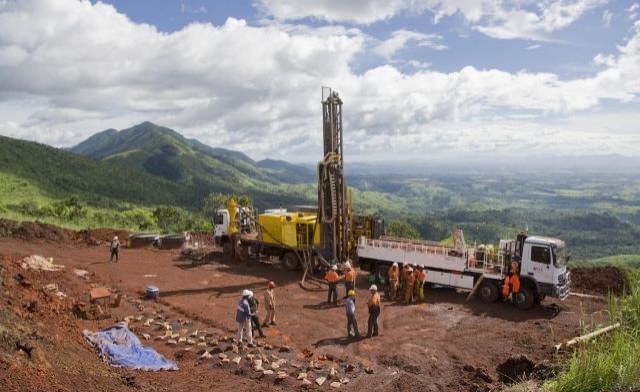Since May 2025, authorities in Conakry have revoked more than 300 mining permits from companies operating across Guinea’s vast mineral sectors, sparking widespread uncertainty among thousands of workers. While the government has stressed its commitment to preserving jobs, anxiety is growing among those now facing redundancy.
The fate of Guinea’s mining workers hangs in the balance, with fears growing over widespread job losses and social fallout as the dust settles from a sweep of regulatory reforms.
The ruling junta says its intent is to clean up the mining registry and boost sector revenues for national development.
One of the most notable cases is the withdrawal of the operating licence from Guinea Alumina Corporation (GAC), an Emirati firm that – along with its subcontractors – employed around 3,000 people, all now at risk of losing their livelihoods.
Earlier this month, Prime Minister Aamadou Oury Bah told RFI that GAC’s assets and staff would be taken over by the newly formed state company, Nimba Mining Company.
“A delegation from the authorities visited to reassure us,” one GAC manager, speaking anonymously, confirmed.
“Right now, GAC is in the process of winding down operations. Most staff have received redundancy notices. We’ve been promised priority, but officials have been cautious and haven’t provided any numbers. For now, I’m remaining optimistic.”
However, the transition from private multinational to freshly established state firm is shrouded in uncertainty and causing scepticism.
Trade unionist Mamady Diakité from the Federation of Mines and Quarries under the General Union of Guinean Workers points out that, “We’ve seen this sort of situation before, as with SMB (Boké Mining Company). Back then, employees were assured their service rights, salaries, and benefits would all be protected. The reality was very different.”
UN panel seeks to stem mining abuses in global rush for critical minerals
State silence
This scepticism is echoed by Amadou Bah, executive director of the NGO Actions Mines, who notes the lack of transparency surrounding Nimba Mining Company.
“We don’t even know its true agenda. Will it take on the activities and outsourced services previously handled by GAC? And what of the refinery project – supposedly one of the reasons for GAC’s permit being pulled? Everything is still unclear,” he says.
“If the state plans to operate at GAC’s previous pace, it’ll have to keep staff levels up.”
Outside GAC, state silence has left employees at other affected companies in the dark.
At Axis Minerals, founded by the Swiss-Australian businessman Pankaj Oswal, the firm reports the loss of its licence puts some 5,000 jobs in jeopardy.
Guinea’s junta sets September vote on new constitution after missed deadline
Mamoudou (a pseudonym), a supervisor at an Axis subcontractor, says that since early May he’s been on reduced hours, receiving only a third of his normal salary.
“It’s nowhere near enough,” he says. “With wages so low, it’s even tougher. Many are looking for new opportunities, but where can they go?”
10,000 jobs at risk
The shockwaves are also being felt in smaller businesses and among local populations in Guinea‘s key mining areas like Boffa, along the Atlantic coast, and Boké in the northwest. The potential number affected could far exceed official estimates.
As Amadou Bah warns, “If you include every salaried worker, we’re looking at more than 10,000 jobs at risk. If the government does nothing, poverty in these communities will only deepen.”
A well-placed source at the Ministry of Mines reports that a review committee is now handling more than 100 appeals from companies contesting the permit withdrawals.
These reviews focus on both procedural and substantive grounds. Some businesses argue the moves are illegal; others are seeking administrative recourse.
“Once verification is complete, we’ll decide what comes next. The state’s priority is definitely job protection, but if a company is found to be in breach of regulations, we cannot intervene,” said the source.
This article was adapted from the original version in French by RFI’s Diarouga Aziz Balde in Conakry.


